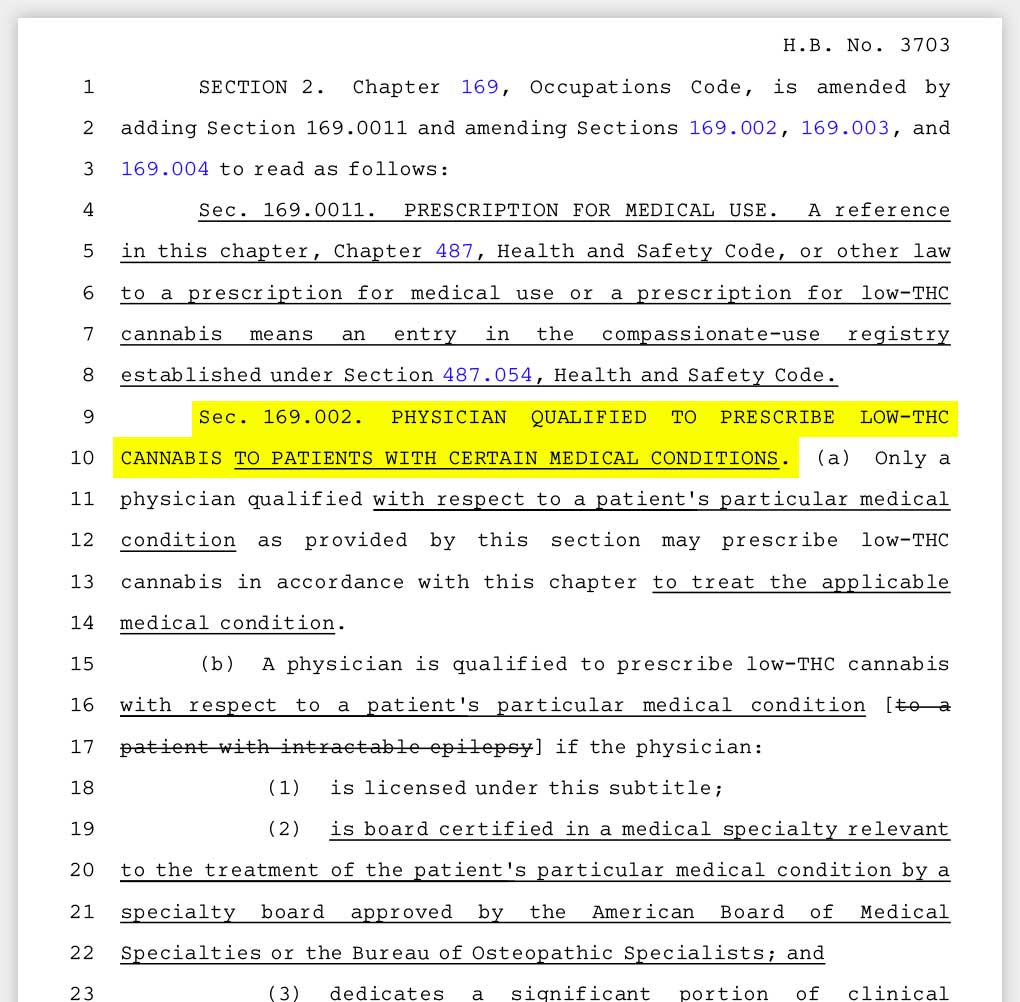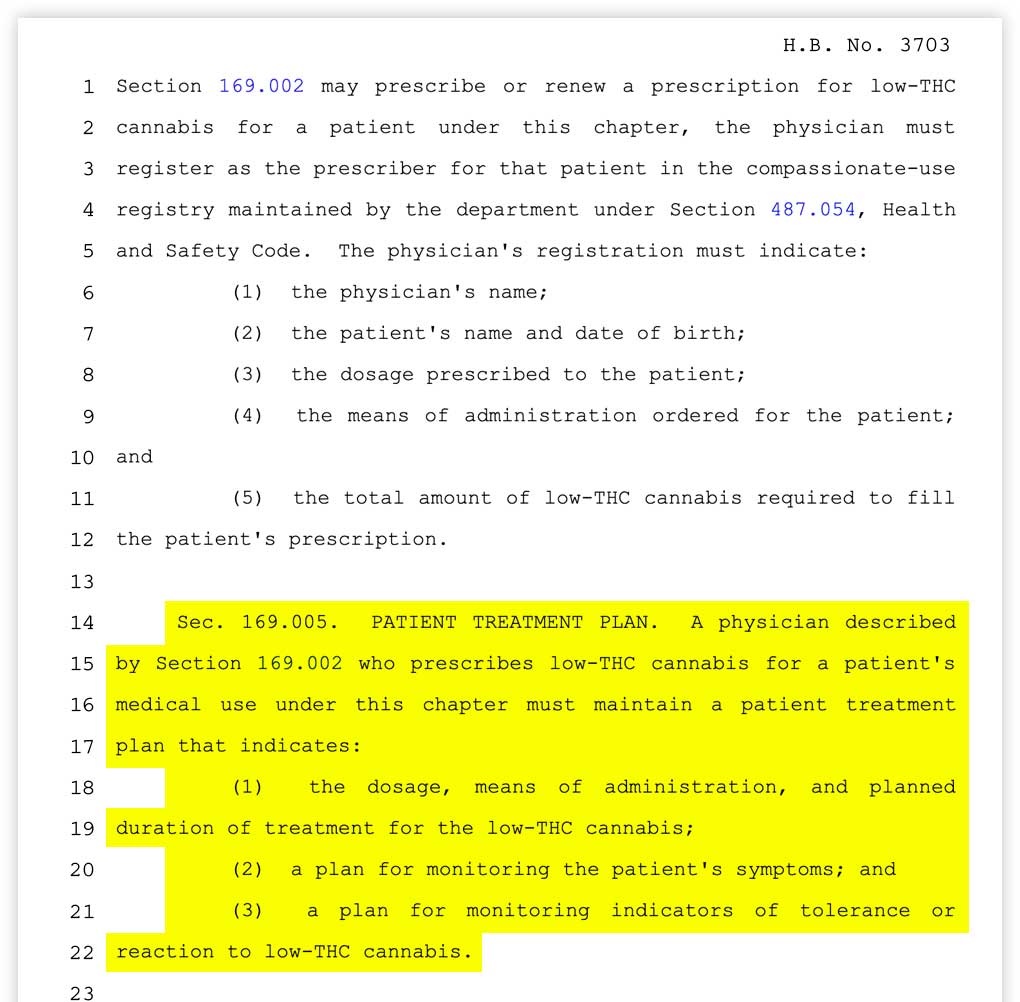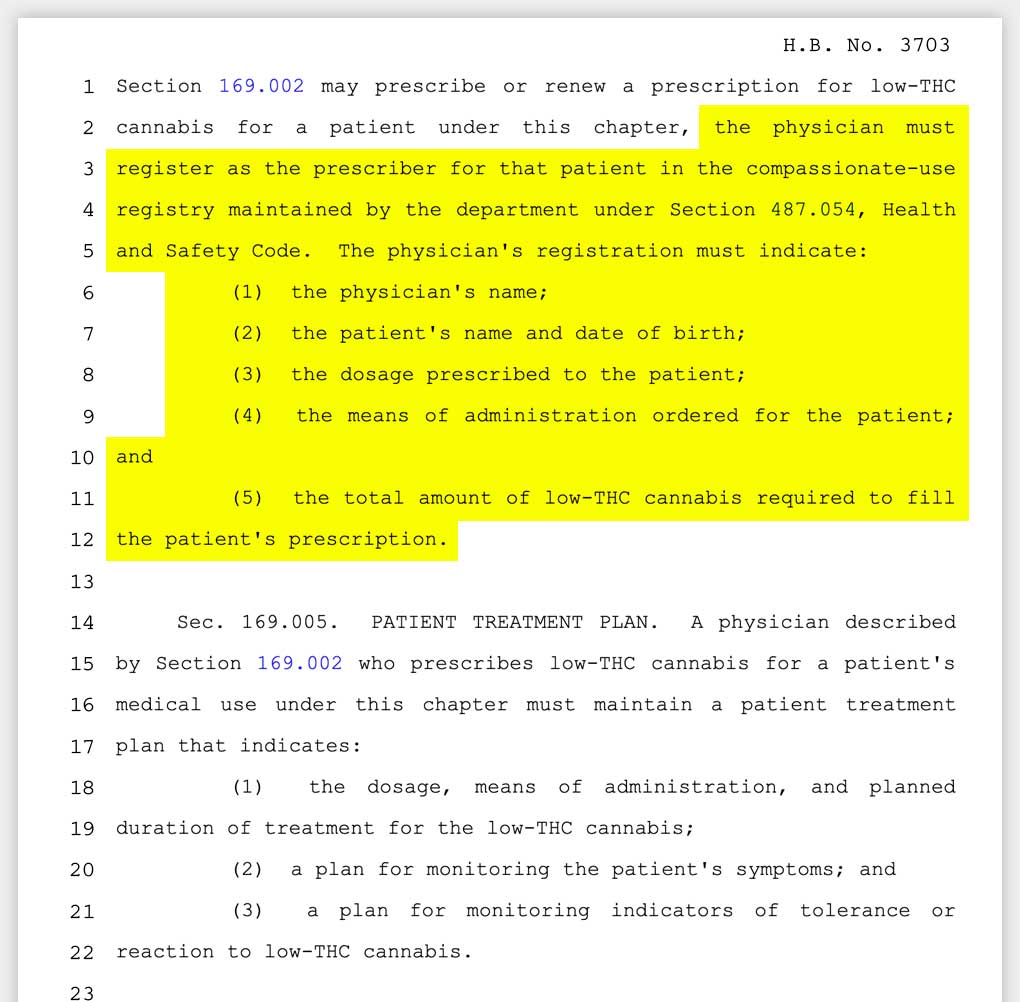Compassionate Use Program
The Texas Compassionate Use Act was first enacted as Senate Bill 339 by the Texas Legislature in 2015. During the 2019 Legislative Session, House Bill 3703 updated the Texas Compassionate Use Act to allow any board certified specialist to prescribe low-THC cannabis to patients who have been diagnosed with epilepsy, multiple sclerosis, autism, ALS, terminal cancer, spasticity, and neurodegenerative disease.



